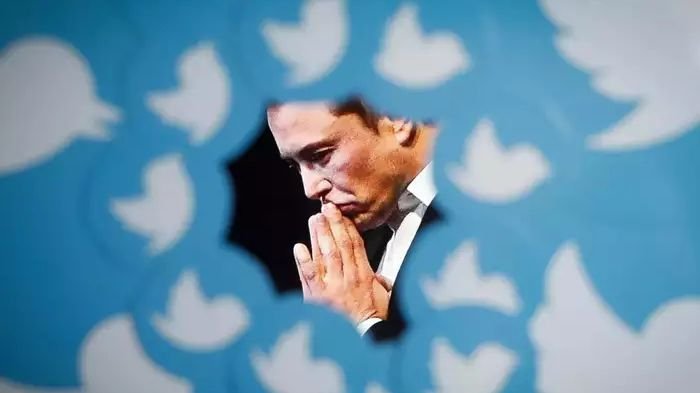The concept of verification on social media platforms has been around for quite some time now. Verification badges, often represented by a blue checkmark, are typically given to accounts that have been confirmed to belong to public figures, celebrities, or influential individuals. These badges serve as a symbol of authenticity and credibility, indicating that the account is genuine and belongs to the person or entity it claims to represent.
Elon Musk, the CEO of SpaceX and Tesla, has been vocal about his views on the verification process on social media platforms. In the past, he has criticized the concept of verification checkmarks, claiming that they promote elitism and limit free speech. In his opinion, these badges create a divide between verified and unverified users, making it difficult for new and unknown voices to gain recognition.
However, it seems that Musk has had a change of heart regarding verification. Recently, Twitter has restored verification badges to several high-profile accounts, including those of LeBron James, Stephen King, and William Shatner.
This move has caused some confusion and controversy, especially since these individuals had reportedly refused to pay the fee for Twitter Blue, a premium subscription service that offers additional features to users.
Stephen King even tweeted about the issue, claiming that his account showed that he had subscribed to Twitter Blue, even though he had not. This raised questions about the transparency and accuracy of Twitter’s verification process, and whether it was being used to promote certain users over others.
The restoration of verification badges to these accounts has sparked speculation about why Twitter made this decision. Some have suggested that it could be a marketing ploy to promote Twitter Blue, while others believe that it is an attempt to appease high-profile users who may have threatened to leave the platform.
Regardless of the reasons behind this decision, it highlights the importance of transparency and fairness in the verification process on social media platforms. Verification badges are meant to indicate authenticity and credibility, but if they are given arbitrarily or for reasons unrelated to merit, they lose their value and significance.
Furthermore, the issue of Twitter Blue and its associated fees raises questions about the monetization of social media platforms and whether it is fair to charge users for additional features.
While it is understandable that companies need to generate revenue to sustain their operations, it is important to ensure that this does not create a divide between users or limit access to certain features based on financial means.
After the controversy surrounding the restoration of verification badges to high-profile accounts on Twitter, Elon Musk revealed in a tweet that he had personally paid for the Twitter Blue subscription for a few celebrities and public figures. It is unclear why Musk chose to do this, but it could be a way for him to support these individuals or to make a statement about the value of verification.
However, it was later observed that the verification badges had started returning to the profiles of other celebrities too. This included a range of public figures from comedian John Oliver to economist Paul Krugman to model turned-actress Sofia Vergara. Even Indian public figures like AR Rahman, Shah Rukh Khan, and Virat Kohli saw the return of their verification badges.
All these profiles showed that they had subscribed to Twitter Blue and had verified their phone number by paying $8. However, many of them took to Twitter to deny the same, indicating that there could be some issues with Twitter’s verification process or the accuracy of their records.
This latest development underscores the need for transparency and fairness in the verification process on social media platforms. Verification badges are meant to indicate authenticity and credibility, but if they are given arbitrarily or for reasons unrelated to merit, they lose their value and significance.
It is important for social media companies to ensure that their practices align with these values and that they are accountable for any discrepancies or inaccuracies in their verification process.
The recent restoration of verification badges on Twitter has taken an even stranger turn, with the badges reappearing on the profiles of public figures who have long been deceased. This includes the profiles of journalist Jamal Khashoggi, actor Chadwick Boseman, pop star Michael Jackson, comedian Norm Macdonald, basketball player Kobe Bryant, and others.
Despite the fact that many of these accounts have been inactive for years, their profiles still show that they have subscribed to Twitter Blue and verified their phone number. This has led some to speculate that Musk-led Twitter has restored the verification badge of all Twitter users who have over 1 million followers on the platform.
Several Twitter users have highlighted the irony of this development, as verification badges were originally intended to authenticate the identities of active and influential public figures.
The return of the badges on inactive accounts raises questions about the value and purpose of verification on the platform, and whether it is being used to create an artificial sense of prestige and influence.
—————————–
Read More:
- A SpaceX rocket exploded soon after launch, and Elon Musk and his employees celebrate it, here’s why
- Elon Musk Ready To Pay 1 Million Dogecoin To Anyone Who Proves His Family Owns Emerald Mine
- Elon Musk loses $13 billion in 24 hours after SpaceX Starship explosion
- SpaceX sets new world record, Congratulation Elon Musk
